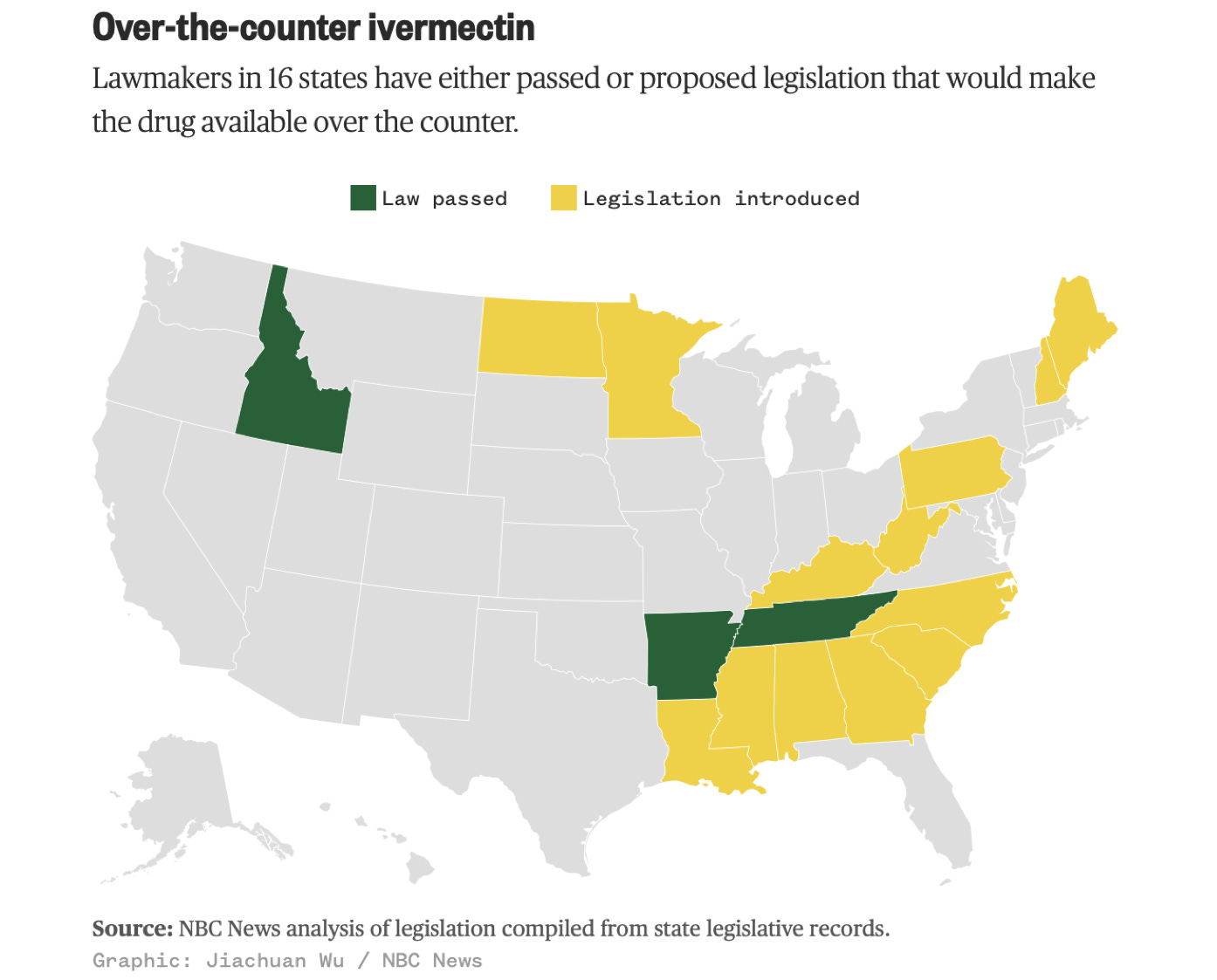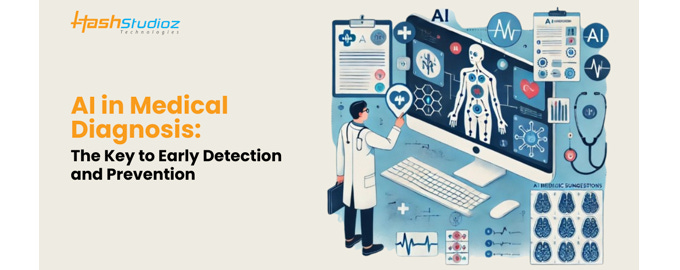☕️ CIVIL WARS ☙ Friday, June 27, 2025 ☙ C&C NEWS 🦠
Vaccine panel votes no to mercury for babies; SCOTUS bomb incoming; media fires on ivermectin; and the medical civil war begins as patients show up better informed than their white-coated foes; more.
Good morning, C&C, it’s Friday! It’s the final Friday in June; in a few days, we hit the year’s halfway mark. Your roundup today includes: new vaccine safety committee votes against injecting babies with mercury— the first shot fired at pharma’s Fort Sumter; big SCOTUS news expected; anti-ivermectin narrative surfaces as media deploys full-out attack trying to stem the medical freedom tide; and the chickens come home to roost as the entire medical-industrial apparatus faces civil war, via a new threat: patients armed with better information than doctors.
🌍 WORLD NEWS AND COMMENTARY 🌍
💉💉💉
Welp, in hindsight, it seems inevitable. The Washington Post ran a great story late yesterday headlined, “RFK Jr. wins his fight against a rare, safe flu-shot ingredient.” The new ACIP vaccine committee voted to recommend against vaccines with mercury in them, and WaPo had a surprising take.
In a migraine-inducing narrative whiplash, WaPo’s story reported that hardly any vaccines include thimerasol anyway, so the decision barely moves the needle. But you’ll recall media’s hysterical predictions of mass death just yesterday.
But today: meh, it’s nothing but a symbolic victory for anti-vaxxers.
“The vote to no longer recommend influenza vaccines that contain the preservative thimerosal,” WaPo explained, “is likely to have limited impact because the vast majority of flu shots are thimerosal-free.” Now they tell us.
The vote, merely a recommendation by the advisory committee, has no binding authority. It must be adopted by the CDC. But the CDC currently has no confirmed director, leaving the final decision up to Secretary Robert Kennedy, who in 2015 edited an anti-thimerosal book. So.
The only panel member to vote no, Cody Meissner, argued it would limit the availability of flu shots. Oh, no. Last year’s shots had a woeful 33% efficacy. Just saying.
But even after dismissing the change as “likely to have limited impact,” the article continued for about ten more pages quoting so-called experts who basically accused the new ACIP committee of being neanderthals who don’t understand anything except primitive PG-13 cave drawings. Of course, the paper didn’t cite any hard facts either, it just hand-waved about “settled science.”
A biomedical civil war just won the Battle of Bull Run against the scientific-medical establishment. It can only get better from here.
⚖️⚖️⚖️
Trump’s lawyers are (finally) going on offense. Yesterday, the Washington Post ran a tantalizing story headlined, “DOJ sues all federal judges in Maryland over deportation order.”
The Chief Judge for the District of Maryland entered a standing order granting automatic deportation stays for any new immigration cases filed in that district. And guess where they’re all being filed now?
Instead of backing down or enduring endless appeals, yesterday, Trump’s DOJ sued the entire Maryland bench for interfering with executive foreign policy authority. Every single judge was named as an individual defendant. I’m not sure that’s ever happened before.
It’s one thing to appeal a ruling. That’s normal. But suing every judge in the district is doctrinal civil war. Beyond legal positioning, it argues that certain judicial practices themselves are unlawful executive interference and beyond the courts’ constitutional authority.
The new lawsuit focuses just on the legality of the standing order, which grants relief to unknown future parties even before their cases are filed. Which makes it a lot more like a law than like judging.
It might seem like a procedurally dense or even narrow issue, but the lawsuit still provoked untrammeled hysteria. Retired Judge J. Michael Luttig complained, “It is reckless and irresponsible and yet another direct frontal assault on the federal courts of this country.” Maryland’s Governor Wes Moore snapped, “Make no mistake: this unprecedented action is a transparent effort to intimidate judges and usurp the power of the courts.”
Carl Tobias, a U. Richmond law professor, called it “mind-boggling.” But maybe the best quote, again from Judge Luttig, admitted the Administration is winning: “The president and his attorney general will continue their ruthless attack on the federal Judiciary and the Rule of Law until the Supreme Court of the United States at least attempts to stop them, because they are winning their war.”
We’ll see. But, TAW.
⚖️ Today will be a huge legal day. SCOTUS is expected to rule in Trump v. CASA, Inc. about whether district judges can issue nationwide injunctions (the electrifying case is also about ’birthright citizenship’). Depending on how the High Court rules, it could change everything. And that case is just one of six critical decisions scheduled for publication today, so expect a lot more insightful legal analysis tomorrow.
💊💊💊
Last week, the Atlantic ran an arrogant article headlined, “How Ivermectin Became Right-Wing Aspirin.” Around the same time, the Washington Post ran a Leana Wen op-ed headlined, “Red states are making it easier to access ivermectin. Here’s why that matters.” The sub-headline sneered, “The upside-down world where unproven treatments are celebrated.” In other words, a new psyop is incoming, and a new summer offensive against Ivermectin has begun.
In one sense, they might have a point. As it happens, I am currently taking the Nobel-prize-winning drug (self-prescribed) after a painful earache and three prescriptions including antibiotics ($185). Wary of the antibiotics, I decided to try ivermectin first, and now, on the third day, my symptoms are noticeably improved. Probably just a coincidence.
Two days ago, another friend told me he’d recently and successfully treated an irritating and resistant patch of dry skin on his forehead with veterinary ivermectin— the infamous “horse paste” (apple flavor). My Twitter timeline is packed with anecdotes from folks who claim to have treated their cancers with the drug. In January, on Joe Rogan’s podcast, Mel Gibson claimed that three of his friends had eliminated advanced tumors with ivermectin and fenbendazole.
All this ivermectin attention is driving the medical fetishists at the Atlantic totally insane.
Right before sneering it into metastatic oblivion, the Atlantic was forced to admit that cancer patients —facing nothing but horrible choices— might not be completely goofy. “The idea that ivermectin could be a cancer-fighting agent does have some modest basis in reality,” the Atlantic stingily allowed. “Preliminary studies have suggested that antiparasitic medications might inhibit tumor growth.” (Shortly thereafter, though, it reverted to form and darkly cautioned against delusional parasitosis.)
💊 No drug in history has been more unfairly targeted for reputational destruction than ivermectin. The FDA —before being slapped down by courts— ran a smirking negative public relations campaign against the medication, not in the science journals, but on social media. Its efforts were crowned with the infamous folksy tweet that finally broke the legal straw: “You are not a horse,” it said. “You are not a cow. Seriously, y’all. Stop it.”
Two years later, the courts forced the FDA to delete that tweet. Ironically —and tellingly— the FDA’s lawyers rode into court arguing the horse tweet was not medical advice. The judge gave that claim the old horse’s laugh. Seriously, y’all aren’t doctors.
Ivermectin is available over the counter in most of the third world, a fact glaringly conspic. by its a. from the Atlantic’s story. Apparently, in the government’s view, Americans are less trustworthy in making their own health decisions than sub-Saharan Africans and rural Indians. During the pandemic, India’s government tried to move ivermectin behind the counter, but gave it up as a lost cause after irate citizens grabbed pitchforks and began melting tar.
A quiet rebellion is underway. Just this year, Republican governors in Idaho, Arkansas and Tennessee signed bills allowing over-the-counter ivermectin. Lawmakers from other red states, like West Virginia, South Carolina and Louisiana, are following the trail.
In fact, interest in OTC ivermectin has climbed to sixteen states —nearing the halfway point— and, straining the media narrative, not all of them are GOP-friendly (e.g., Pennsylvania and New York). Here’s a handy infographic that NBC provided in its own Ivermectin hit piece:
Both articles —the Atlantic’s news piece and WaPo’s high-profile op-ed— blamed MAHA, and what Ms. Wen labeled as a “deep distrust of public health that resides at the heart of” that movement. Wen remained uncurious as to where the distrust might have come from.
The Atlantic’s author blamed “health-care skeptics” for pushing “a self-destructive fantasy.”
💊 The avalanche of anti-ivermectin articles are not medical critiques. They’re ideological containment operations — an attempt to mock, marginalize, and deter through scorn what legal and scientific argument no longer forbids. The states’ reaction terrifies them: it’s civil disobedience at the highest levels.
It’s a medical civil war.
A growing group of states are flatly rejecting the scientific-medical establishment. States are using their legislative authority to claw back control over pharmaceutical access— bucking FDA orthodoxy and the entire pandemic-era narrative.
Most significantly, the rebellion isn’t found amongst hemp-clad mushroom circles or barefoot health-retreat crowds storming the Capitol with peace signs. It’s sober, straight-laced state legislators — churchgoers, Rotarians, small-town mayors turned senators — who now don’t trust the FDA even to regulate a generic anti-parasitic.
Conservative lawmakers are not exactly known for being risk-takers or bucking institutional orthodoxies.
To be clear, this is not anti-government sentiment. It’s a movement against unaccountable bureaucracies. States are invoking their constitutional sovereignty over medicine the same way they’ve long resisted federal overreach in education, environmental rules, and firearms.
The problem that Wen faces, that the entire medical establishment faces, is that, like me, most red-state lawmakers have tried ivermectin for themselves— and found it effective. The more the Atlantics and the Leana Wens screech in horrified protest, the more the public recognizes them as unreliable narrators.
And once the ivermectin floodgates opened, well, Katie, bar the barn door. See, e.g., fluoride.
I tried to tell them this would happen. But the reckoning is much worse than even I imagined.
💊 Which brings us to yesterday’s fascinating piece from The Observer, headlined “Doctors Warn of AI Invading the Medical Industry.”
Let’s do a thought experiment. Cast your mind back to the halcyon, carefree, pre-pandemic days. Doctors enjoyed the highest ratings in surveys of trusted professions. Their advice was considered irrefutable. I’m sorry, I can’t make your niece’s bat-mitvah in Nassau, as much as I’d love to come; my doctor said I can’t travel.
Second opinions were considered highly disrespectful.
But now, five years in, the Observer fretted that doctors in general practice might be in the first tranche of jobs obsoleted by AI, since people prefer to ask Grok about their unsightly groin rashes. “As technology advances,” the Observer gloomily noted, “it’s evolving to replace medical professionals across every field.”
It’s really bad news for people who borrowed hundreds of thousands to finance a medical degree. “As AI progresses in an unregulated market, primary care physicians will likely be replaced first,” a doctor quoted for the story predicted. Not just primary care, either: “Still, specialists will eventually be replaced or at least significantly reduced in number.”
A viral story made the rounds on Reddit this week. It featured a man who said ChatGPT saved his wife’s life. She had gotten a cyst removed and wasn’t feeling well, but was taking antibiotics and decided to “wait it out.” After he described his wife’s symptoms to ChatGPT, the chatbot advised him to immediately take his wife to the ER. He did. It likely saved her life. Doctors diagnosed her with sepsis.
Last month, we snapped a cell-phone picture of a persistent, spreading, but not painful rash on one of the boys’ hairy legs. ChatGPT offered three possibilities and recommended an over-the-counter antifungal cream. We tried it. Each day, we gave Chat an updated photo, and it reported improvement— pointing out things in the pictures we hadn’t even noticed. The rash was gone a few days later.
I’ve heard from friends who uploaded their Labcorp blood test results into ChatGPT and were amazed by the detailed and insightful feedback that their doctors didn’t offer. I’ll bet many of you have had similar experiences. Share them in the comments.
It’s not just patients. Doctors are relying more and more on AI, too. Yesterday, FastCompany ran a story in which it reported that “two-thirds of doctors now reportedly use ChatGPT to help them home in on a diagnosis, often with good results.” In February, a new AI healthcare startup called OpenEvidence reported that 250,000 U.S. doctors were already using its product, and by mid-June the number had rocketed to 350,000.
And the AI revolution is just getting started.
The Observer’s medical experts pushed back. Patients are too stupid to use AI. “The biggest issue is that people can't ask the right questions,” said Dr. Yee. “They can't put the right things into ChatGPT.” Even worse, AI doesn’t enforce DEI. “When historical data carry biases — such as underrepresentation of certain groups or gender biases in treatment — AI systems inevitably absorb and perpetuate these biases,” complained Dr. Ted James, a Harvard medical school professor.
Laughably, the post relied —even expanding the quote into a dramatic call-out— on this main complaint: “AI did not take the Hippocratic oath,” Dr. Yee insisted. Which circles us right back to the main point.
Who squandered patient trust in doctors during the pandemic, by proving the Hippocratic ‘Oath’ is, at best, a hypocritical suggestion? Who created the environment where patients are more likely to trust their chatbots than their internists?
Doctors, that’s who.
I’d argue that, absent the healthcare profession’s awful pandemic excesses, AI would not pose anywhere near the kind of threat to doctors’ careers that it now most evidently does. Doctors nuked their own credibility, en masse. Not with a mistake. Not even a few. But with a pattern of patronizing, lockstep obedience to a failing narrative — always at the patients’ expense and their own CMS-fueled enrichment.
💊 There is some good news for medical professionals, sort of. This isn’t doctors versus robots. It’s not so much that doctors are becoming obsolete, but that the entire industrial-institutional healthcare model is becoming obsolete. AI can easily handle skin rashes and infections, but doctors will always be needed for complex medical diagnoses and structured care strategies.
Doctors can, if they want, offer what ChatGPT cannot: compassionate human contact. They can provide individualized patient care instead of flow-charted, assembly-line healthcare.
AI is sweeping away the system — the bloated, insurance-glutted, CYA-scripted, EMR-enslaved version of medicine that made everyone sick to death. ChatGPT doesn’t replace the doctor. It replaces rushed 7-minute visits, nurses who say “the doctor will see you now” but mean “in about forty minutes,” and the $200 co-pay to be told four hours later that “it’s probably viral, drink water.”
The same ChatGPT that tells you it’s probably ringworm can’t feel your lymph nodes. It can’t detect the weariness in your voice. It can’t call you the next day to find out if you’re feeling better and if you slept well. And it can’t look you in the eye and reassuringly say, This must be scary — we’ll figure it out together.
Imagine replacing the term “healthcare provider” with “healthcare partner.”
In the 1400’s, Johannes Gutenberg invented the printing press, to mass-produce English-language Bibles, and in doing so lit off a bloody civil war between priests and penitents. What had once been the exclusive domain of Latin-speaking clerics — the interpretation of God’s word — was now suddenly accessible to every farmer, merchant, and cobbler who could read. The Church called it heresy. The people called it revelation.
For hundreds of years, Popes fulminated volcanically. Monarchs maniacally burned books. Reformers were burned on stakes. And everything changed.
AI is to the medical profession as the printing press was to organized religion. It shatters the monopoly on closely guarded knowledge. It empowers the laity. It reveals just how often the robed (white-coated) gatekeepers were bluffing.
Before Gutenberg, the priesthood hoarded scripture, issuing doctrine from on high, always gatekeeping, and immune to scrutiny. After the press, their words suddenly had competition: the source material. Likewise, before AI, medical authority was treated as gospel.
Questioning your doctor was heresy — punishable by condescension or a quiet note in your permanent chart: “noncompliant.”
But ChatGPT pulls up studies your doctor hasn’t read. It explains side effects in full sentences instead of hastily scribbled warnings. It doesn’t interrupt, rush, or dismiss. It doesn’t condescend. It politely answers every question, no matter how many you ask or how dumb they are.
The real threat to medicine isn’t that AI makes mistakes. (So do doctors. A lot.) The threat is that AI demystifies the process — and proves it was never magic to begin with. It’s just pattern recognition, obscure vocabulary, hoarded data, and access to knowledge.
Everything is different now. Patients now have their own medical bibles— in English. Doctors find themselves in a deep hole to justify their value. A hole that they dug during the pandemic, which is getting deeper by the minute. They now must dig themselves out by reinventing their careers.
It’s time to make the old cliché come true: I got into medicine because I wanted to help people. Now they have a chance to prove it.
They didn’t get into medicine to help systems, or help drug reps, or help Orwellian health bureaucracies churn out diagnosis codes and insurance reimbursements. But to help people. Patients. Patient-centered care.
AI can handle the labs. Doctors need to focus on health.
Have a fabulous Friday! I’ll see you on the flip side tomorrow morning, with a terrific Weekend Edition roundup of essential news and commentary.
Don’t race off! We cannot do it alone. Consider joining up with C&C to help move the nation’s needle and change minds. I could sure use your help getting the truth out and spreading optimism and hope, if you can: ☕ Learn How to Get Involved 🦠
How to Donate to Coffee & Covid
Twitter: jchilders98.
Truth Social: jchilders98.
MeWe: mewe.com/i/coffee_and_covid.
Telegram: t.me/coffeecovidnews
C&C Swag! www.shopcoffeeandcovid.com












AUTHOR'S NOTE
It seems I've unintentionally offended some of my valued Catholic readers. To be clear: I’m not a theologian, nor do I pretend to be or even play one on YouTube-TV. I’m just a lawyer fumbling my way through history to make sense of present-day battles. My comparison between AI and the printing press was meant to be a cultural analogy rather than a doctrinal claim — and certainly not as a commentary on the fullness of Catholic tradition or the complex role the Church played in preserving, transmitting, and interpreting Scripture.
I am grateful to my sincere Catholic brothers and sisters in Christ who were willing to engage today's post with substance and grace. Iron sharpens iron.
I'll request that, for today, those with strong feelings going the other way please refrain from commenting here, so as not to dilute the sincerity of my outreach.
Well, today I’ll settle for top five in comments! Have a blessed day everyone. Tonight I head in to work a long weekend of nights in a busy ICU. Pray for healing for all sick in hospitals now.